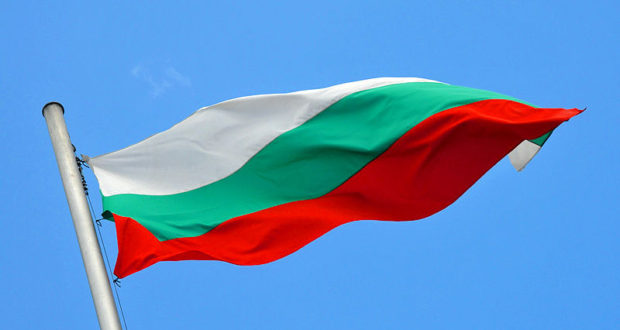January 14th, 2017
By Irena Baboi – Research Assistant
In an election result that appeared to reverse the diplomatic effects of the economic sanctions on Moscow, on 13 November Russia-friendly Socialist candidate Rumen Radev was voted President of Bulgaria. The international media was quick to attribute geopolitical reasons to the result, when in reality Radev was the answer to a wide variety of worries on the part of a significant percentage of the Bulgarian population. The vote was also not for as much as it was against something – against the system created in the aftermath of the fall of communism; against poverty and corruption; and against a future that seems to be leaving certainty behind for those who need it the most.
Rumen Radev, former NATO fighter pilot and political novice, won 59% of the vote on promises that cater to a wide range of fears and disillusionments, both old and new. Frustration with corruption and low living standards, as well as a desire not to alienate Russia at this critical time, featured highly on the list of boxes that the new president needed to tick. The military background, along with his limited political experience, certainly contributed to his victory – and running against a weak opponent is always helpful during an election. Tsetska Tsacheva, the candidate of the ruling centre-right GERB party, managed to secure only 35% of the vote, prompting Prime Minister Boiko Borisov to resign after a decade in power. As Borisov himself understood, more than anything, the results highlighted a fatigue with the current elite, whose slow pace of reforms and even slower progress in combating corruption have meant that Bulgaria continues to be the European Union’s poorest member.
As one of the last countries to join the organisation, Bulgaria has had its disillusionments with the European Union since early on, as well as a steady desire on the part of a significant percentage of the population to maintain good relations with Russia. After almost a decade of European Union membership, Bulgaria continues to be highly dependent on Russian energy, as plans for alternative gas pipelines have yet to come to fruition. Radev’s call for the lifting of economic sanctions over Russia’s annexation of Crimea is also less selfless than it appears – said sanctions have had a negative impact on Bulgaria’s economy as well this year, and contributed to the general discontent that has led to these election results.
More worryingly, but perhaps unsurprisingly, Radev’s victory was fuelled by the anti-immigration sentiment that has plagued Europe this past year. His pledge to oppose the European Union’s resettlement policy was a well-calculated response to the ongoing fears in his country, as well as an opportunity to show a tough stance on a matter he knew would be considered important by the population. Losing Bulgaria to Russia, then, should not be the European Union’s main concern; it should be that reaching agreement on an even distribution of refugees among its member states is not likely to become easier.
The international media was also quick to make comparisons with Moldova, the latter holding the presidential vote and electing a pro-Russian candidate on the same day. This, a high degree of dependency on Russia, dissatisfaction with poverty and corruption, and the fact that the president’s role is largely ceremonial are in reality as far as the similarities go between the two countries. Unlike Radev, Moldova’s new president, Igor Dodon, is both pro-Russia and anti-EU, and his goal of strengthening ties with Moscow is likely to be achieved at the expense of virtually all progress on the European front; and unlike Moldova, Bulgaria is a member of both the European Union and NATO, and stands to gain more than lose from this warming to Russia, both internally and externally.
For the past more than two decades, Bulgaria has sought to have the best of both worlds – and succeeded. When Radev says that good ties with both the West and Russia are not incompatible, the recent history of his country proves him right – for years now, Bulgaria has maintained the kind of balancing act countries like Serbia, Ukraine and Moldova can only dream of, being the only state in the region that has achieved its goals despite needing to please both. A close relationship with Russia did not prove an overwhelming obstacle to Bulgaria’s European Union accession and, aside from occasional tensions and threats, NATO membership did not mean a complete severing of ties on the part of Moscow. Being considered strategic by both sides, but also timing its tilt towards one or the other well over the years, have translated themselves into the advantage of never having to pick a side.
With early elections likely to be called in the spring, Bulgaria is set for months of internal political tensions; externally, however, it will be business as usual – with the added benefits that come with friendliness towards Russia on one side, and keeping a fearful and dissatisfied population content on the other. It is always useful to have friends in high places, particularly for a small country; and as things stand, Vladimir Putin continues to be one of the important ones. This, however, does not mean that Bulgaria will trade the West for Russia, nor that either side will have the country make that choice. With political divisions ensuring a long road ahead towards a coalition, it is internal compromises that will have to be made starting January – and for the better part of next year, the battle for Bulgaria will be local, not international.
 Human Security Centre Human Rights and International Security Research
Human Security Centre Human Rights and International Security Research




